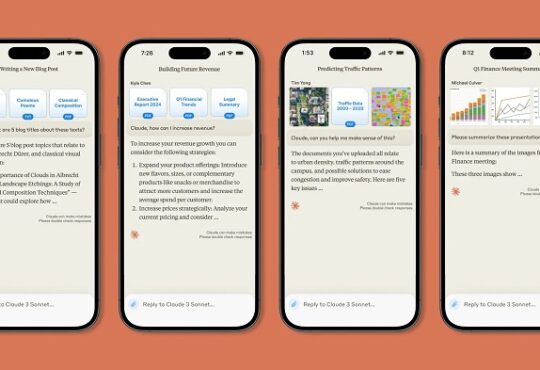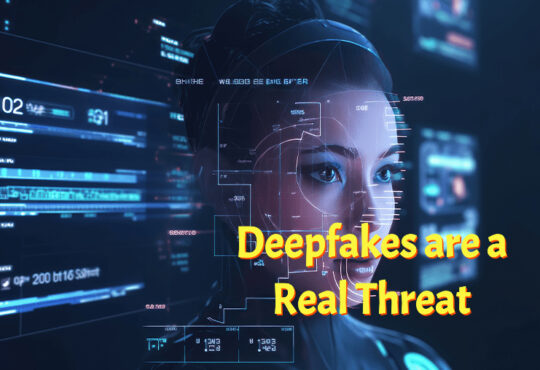
There is no doubt that a variety of disruptive technologies have profoundly changed how we live and work, having a significant effect on all of our lives. In reality, over the past ten years, the rate of change—the rate at which new technological innovations emerge—has accelerated.
What is ChatGPT?
The conversational AI system developed by OpenAI, called ChatGPT, is one of the most fascinating developments in AI. Thanks to its ability to understand and produce text that sounds like human speech, ChatGPT is quickly becoming popular in a variety of fields, including customer service and marketing.
The “Generative Pre-trained Transformer,” or GPT, provides comprehensive answers to customer questions. These answers always provide detailed justifications, have the ability to remember what was said previously, and even have the ability to correct themselves if necessary.
Furthermore, ChatGPT has a moderation API that filters the queries to help the AI avoid objectionable inquiries. Because the AI is not presently connected to the internet, all of its knowledge comes from training data.
ChatGPT’s applicability to the HR department:
ChatGPT has a variety of applications. It is interactive, so it can easily provide first-rate employee assistance. As a result, the chatbot can reply to the majority of employee questions, saving the HR team from having to repeatedly address the same issues. ChatGPT can act as an AI-based analysis tool because it can derive inferences from the employee data. It can identify the main issues a company is dealing with and suggest practical solutions to increase staff engagement.
The expense, time, and effort needed to maintain employee engagement are reduced when questions are answered using ChatGPT. The AI chatbot can quickly and effectively respond to questions from staff members. It might even offer insightful thoughts that boost business productivity. Because ChatGPT is flexible, it can be applied in a range of circumstances. HR departments can develop sophisticated, specially crafted employee engagement strategies by utilizing this tool’s potential. As a result, ChatGPT can be used in a variety of circumstances to assist the HR department in carrying out its duties.
ChatGPT’s benefits for the HR department:
Deploying ChatGPT has a number of advantages, including improved insights, simpler management, greater cost effectiveness, and employee engagement. Thanks to a dedicated chatbot, the employees have access to a virtual HR at any moment of the day from anywhere.
So let’s discuss each advantage of implementing ChatGPT for the HR department in more detail:
Query Resolution Made Simple
Because ChatGPT is so adept at demystifying complicated ideas, it is an optimal chatbot. As a conversational tool, ChatGPT can respond quickly to employee questions. Given that the employee won’t have to recall complicated menu paths, it will speed up the query resolution process. Furthermore, ChatGPT needs zero training, which improves its potential as a query-handling tool.
A stronger employer brand
The excellent assistance offered by ChatGPT enhances the working environment for employees. It guarantees that the staff members are happy with their job and actively support the business. Having a chatbot also aids in recruiting because applicants get to interact with an AI-based chatbot and learn something new and exciting. These elements help to successfully motivate employees, which in turn improves the standard of their output and thus enhances employer brand.
Analytics built on AI
To analyze the employee database and draw insightful inferences, use ChatGPT. AI automation offers perceptive data that helps understand the workforce better. The chatbot can even offer predictive analysis and suggest methods to prevent negative outcomes because it is AI-powered. The comprehension of minute details that affect an organization’s performance can also be aided by AI-based data. For instance, it can assist you in understanding patterns in employee absence, attendance, and break times and alert you of any staff members who may be acting sluggishly at work. Such in-depth perspectives will assist you in streamlining your operations by retaining your workforce and optimizing their job responsibilities.
Cost-efficient Approach
The HR staff can use chatbots in a variety of ways for a one-time investment. As a result, it is extremely cost-effective because it simplifies a number of processes and raises employee morale. Engaged employees produce higher output and more efficient workflows, which further reduce the time and costs required to produce the products and services. Faster processing and resolutions are ensured by a powerful HRMS and ChatGPT’s interactive features.
Conclusion:
While the complete implementation of ChatGPT for HR departments is still a few years away, the prospects for employee engagement appear promising. The effectiveness of the team as a whole and the HR department is improved by implementing the same.
Effective employee engagement ensures devoted staff members who actively work to lead the business towards success. OpenAI’s ChatGPT, one of the most sophisticated publicly available chatbots, will be ideal for helping the HR team take care of the employees.

(This article is written by Mr OmPrakash Muppirala, VP of Engineering & Head of Fountain India, and the views expressed in this article are his own)








